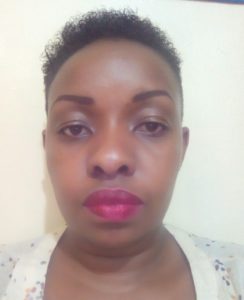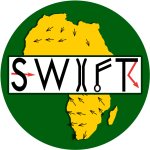As part of African SWIFT actions to promote female participation and gender balance in its activities, and to attract more women in the fields of science and meteorology in general, we asked some of SWIFT African female scientists to reflect on their experiences of working in this field, including any barriers that they might face, and tell us their career development stories.
In this post we share the interview with Jemimah Gacheru-Ongoma from Kenya. Jemimah is a researcher at the Kenya Meteorological Department and is a member of SWIFT Work Package R5, working with synoptic methods and Work Package C1, promoting operational training and university programmes in Africa. Jemimah answered questions related to their motivation to start a career in meteorology, their opinions about the state of meteorological research in Africa, the main barriers for women in forging scientific professional careers in sub-Saharan Africa and in Kenya, and how programmes like African SWIFT can help other women in the scientific world.

1. How & why did you get into this career?
I stumbled upon meteorology by accident. I had been admitted into an under-graduate course that I did not like so I walked into the Admissions Office at University of Nairobi and requested for a list of all the courses that they were offering. Being very picky about the campus that I wanted to attend I wasn’t exactly spoilt for choice when it came to courses to pursue. So my criteria became the class size. Meteorology had the smallest class on the list, so meteorology it was. I walked into my first lesson a month later than everyone else, terrified at the prospect of 6 units of Math and Physics; but one lesson of Introduction to Meteorology confirmed that I had made the right choice.
2. How would you describe the state of meteorological research and advancements in Africa?
Africa is still lagging behind in research. Only a handful of meteorologists can boast of having published papers or undertaken any form of research. This is probably due to the fact that many meteorological institutions lack the funding to carry out research. In other instances meteorologists may not have the necessary skills to come up with advancements in their field.
3. What do you think the main barriers are for women in forging scientific professional careers in sub-Saharan Africa?
Cultural norms. Women (even those who are educated) are expected to pay more attention to raising families than to building their careers.
Lack of funding to further their education.
4. What do you think the specific issues are in your home country for female scientists in advancing their careers?
Cultural norms are an issue in Kenya. Women have to strike a difficult balance between career and family. They have to find ways to make enough money to convince sceptics that their careers matter. However, tough economic times are bringing somewhat good tidings to women as more men allow their wives to go back to school or spend more time at work in the hope that their wives will be able to put more food on the table.
Lack of funding to further their education is also an issue.
There may also be a lack of interest in research since some view it as difficult and time consuming. A lot needs to be done to create interest in research among female scientists.
5. How do you think programmes such as GCRF African SWIFT can help other women in a similar situation to yours?
It would be nice if programmes such as GCRF African SWIFT would allocate more funding to supporting women’s education especially at post-graduate levels. Such programmes could also finance short-courses that improve women’s research skills and motivate them to write and publish high-quality papers.
In focusing on women it is important that attention be paid to the duration of courses because the longer the duration, the less attractive the course becomes to women with families. Where course duration cannot be compromised, partnerships local universities/colleges should be sought. It is great to see that GCRF African SWIFT has made great effort to make its fellowship programme attractive to female scientists.
